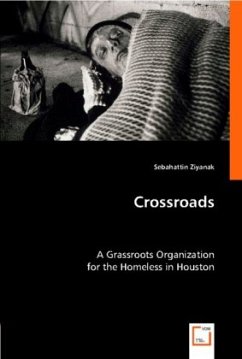During the last two decades the re_emergence of homelessness as a salient social problem has drawn the attention of many scholars and policy makers. In this study I emphasize the importance of grass roots organizations that help the homeless and show the difference that such organizations can make. Specifically, this thesis develops the general knowledge of grassroots organizations using the case of Crossroad, a Houston-based organization established in 2001 as a 501(C)(3) non-profit organization. Crossroad helps homeless people to attain better opportunities. In particular, the Crossroad organization provides services, including meals, hygiene, counseling, medical services etc. Utilizing a case study approach with extensive ethnographic observations and interviews, I collected information from homeless people and service providers who volunteer at Crossroad. The data were derived from my field observations from Fall 2004 to Fall 2006. In addition, I try to understand to what extent Crossroad helps homeless persons create an identity as a homeless person and what Crossroad means for the homeless. Within this framework, I discuss and make suggestions to social policy makers to better address this issue in the future.
Bitte wählen Sie Ihr Anliegen aus.
Rechnungen
Retourenschein anfordern
Bestellstatus
Storno








